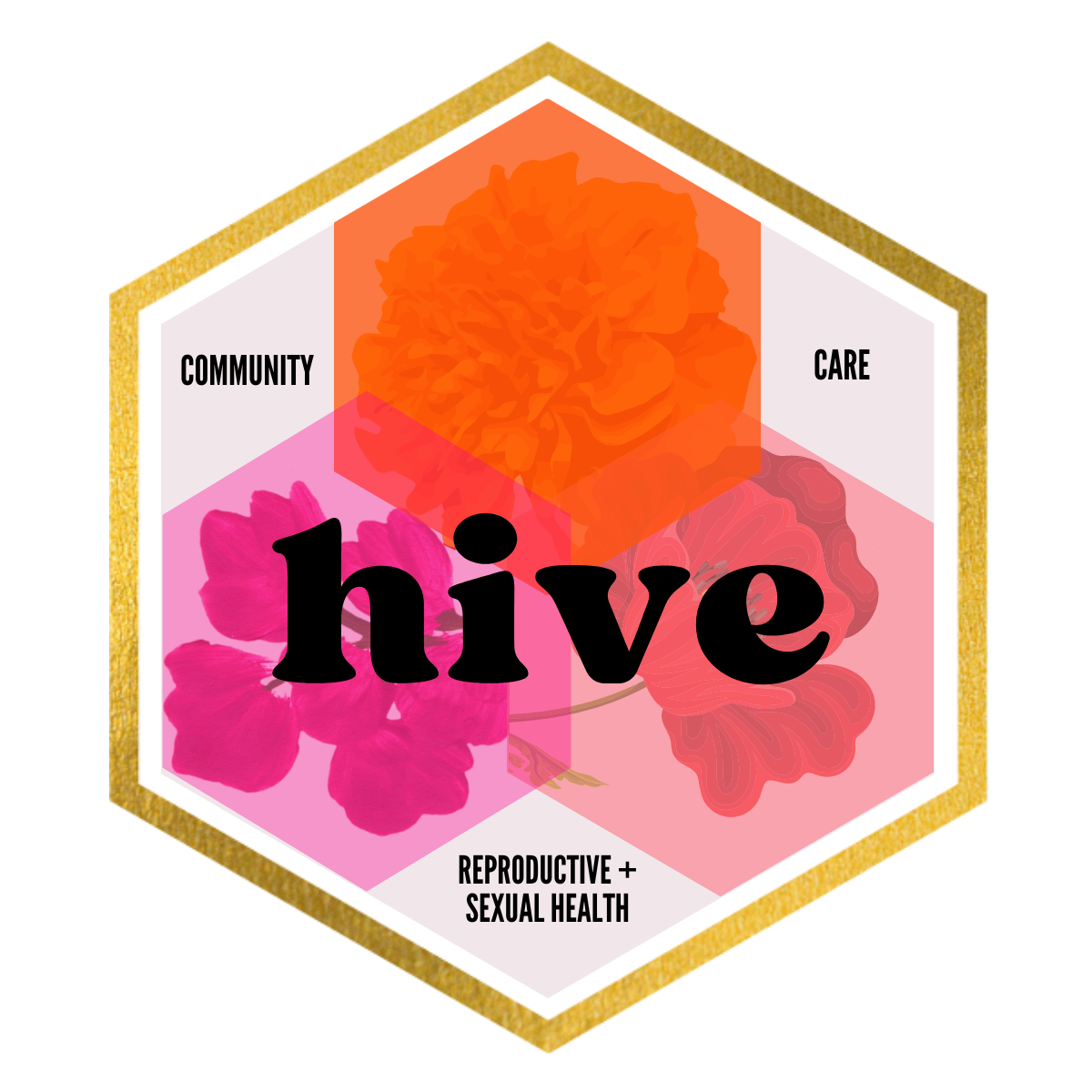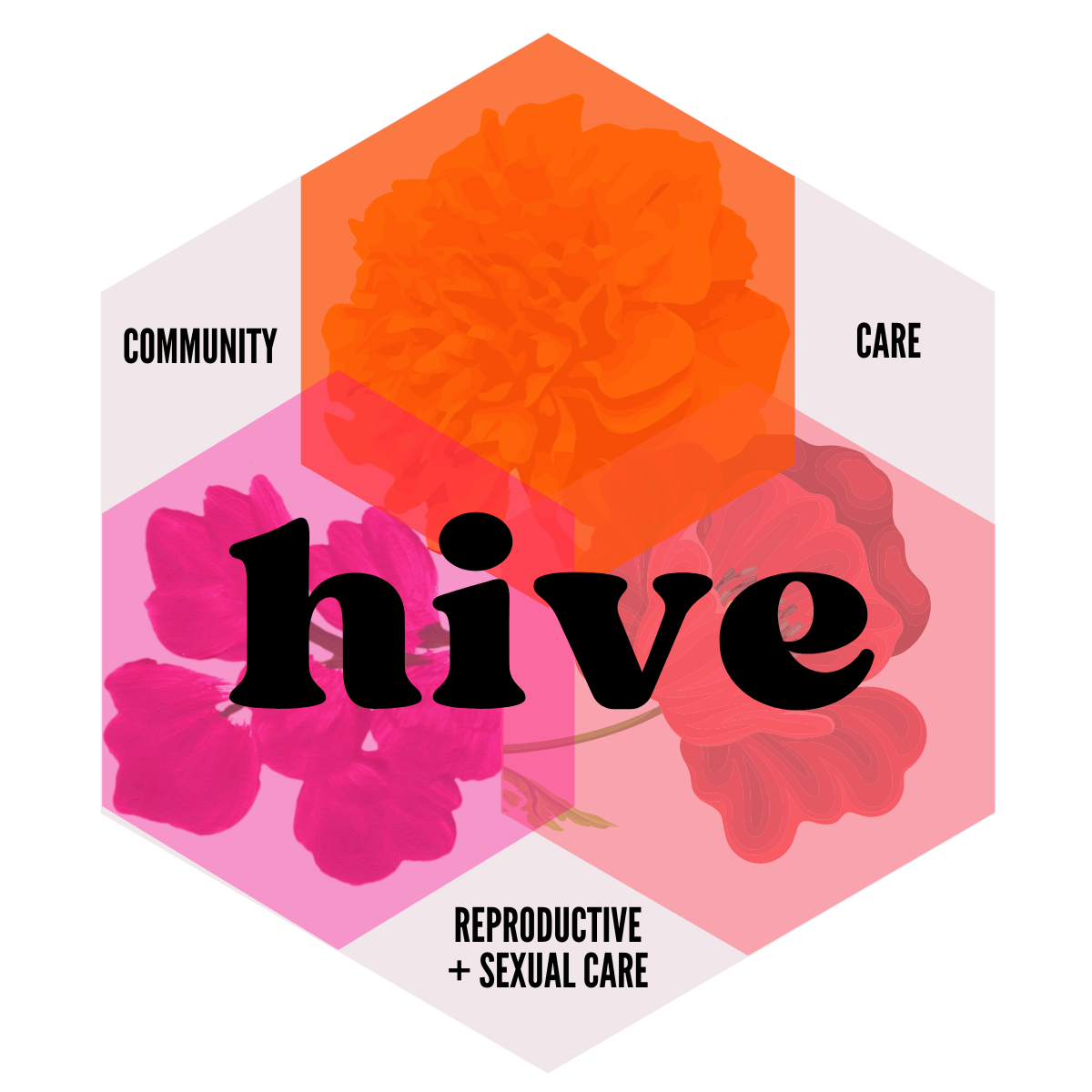For HIV Negative Women
Welcome!
Information to empower you to make informed decisions about sex, relationships, and family planning. Information on HIV prevention and safer conception methods for women.
To read real life stories, visit the HIVE Blog.
Folletos Informativos en Español
Information for you
-
HIV is transmitted, or spread, through contact with these body fluids:
Blood (including blood from your period and any blood in saliva, urine, and feces).
Semen (“cum”) and other sexual fluids from the penis (“pre-cum”).
Vaginal fluids.
Breastmilk
HIV is not spread through contact with these body fluids:
Sweat
Tears
Saliva (spit)
Feces (poop)
Urine (pee)
Methods of transmission:
-> Perinatal transmission: during pregnancy, labor, delivery, or breastfeeding.
-> Sex not protected by condoms or medications.
-> Re-using or sharing needles or other works/equipment for injecting drugs, tattoos, or other substances.
HIV is not spread by:
Hugging
Holding hands
Kissing
Drinking or eating from the same cups or utensils as a person living with HIV
Using a toilet also used by someone living with HIV
You can safely share a drink, a hug, a toilet, a handshake, dishes with someone who has HIV.
Taking your HIV medications and staying undetectable is not only good for your own health, it is the best defense against transmitting or passing HIV to another person.
For more on HIV transmission:
The Well Project: HIV Transmission
Medline Plus: HIV/AIDS in Women
Video: Dr. Lisa Fitzpatrick Talks about How HIV is Transmitted
-
Undetectable equals Untransmittable (U=U):
One of the most effective ways to prevent passing HIV to a sexual partner is taking your HIV medications as prescribed by your medical provider and maintaining an undetectable viral load. U=U has been endorsed by many researchers and organizations.
An undetectable viral load works in preventing transmission of HIV and supporting you in having a healthy enjoyable sex life.
Pre-Exposure Prophylaxis (PrEP)
PrEP is a medication that a person without HIV takes to keep from getting HIV. PrEP works if taken daily. PrEP takes 7 days to start working before anal sex, and 20 days to start working before vaginal sex. PrEP is safe and effective. Most people can tolerate PrEP well, but it may have some mild side effects like nausea and headaches when first starting.
Anyone taking PrEP should be seen by a medical provider for regular lab check-ups, including HIV/STI testing, Hepatitis B testing, and tests to make sure their kidneys are healthy. To find a PrEP provider, and for live chat about PrEP, visit PleasePrEPMe. For more on PrEP, check out this CDC resource.
Post-Exposure Prophylaxis (PEP)
PEP is an emergency medication available by prescription that can stop HIV if started within 72 hours of exposure. If you’ve been exposed to HIV within the last 72 hours, go to a clinic or emergency room and ask for PEP. For more on PEP, check out this CDC resource.
Condoms
Using a male or female condom with lube when you have vaginal sex works to prevent pregnancy, HIV, and other sexually transmitted infections (STIs). For people living with HIV, using condoms can prevent other STIs and pregnancy.
Using a female condom may give you more control. Female condoms can also increase pleasure for both partners. This is due to heat-transmitting material, stimulation from the ring, wider size, and looser fit. To learn more about female condoms, check out our friends at the National Female Condom Coalition. To learn how to use one, watch this demonstration video.
For more on condoms as an HIV prevention method, check out this resource from our friends at The Well Project.
-
Advances in HIV treatment and prevention make starting a family an exciting and safe option for couples affected by HIV. There are several safer conception options available to you.
-
The Well Project is an online resource for women and girls that provides information access, community support, and advocacy.
Positive Women’s Network – USA is a national membership body of women living with HIV and allies that exists to strengthen the strategic power of all women living with HIV in the United States.
Prevention Access Campaign | Undetectable = Untransmittable –#UequalsU Facebook Group
TheBody.com | Can HIV-Positive People Have Babies?
Avert.org | Pregnancy, Childbirth & Breastfeeding and HIV
HIV.gov | Preventing Mother-to-Child Transmission of HIV

